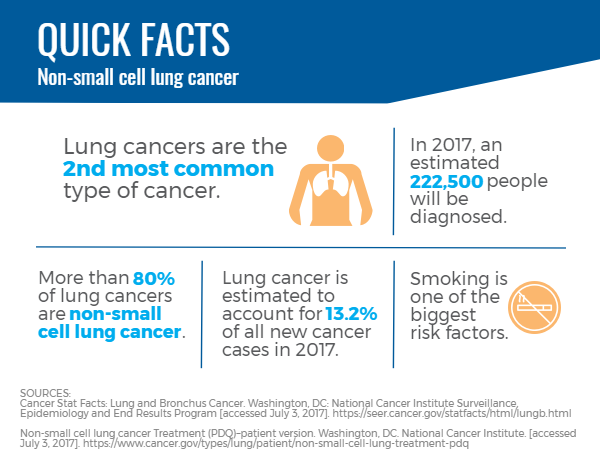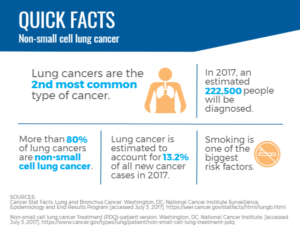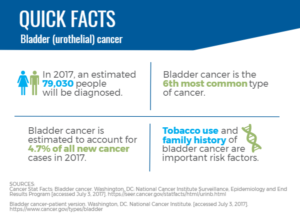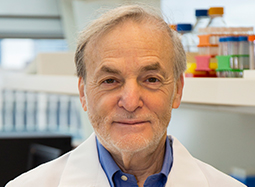Stand Up To Cancer awards $5.5 million to VARI for cancer clinical trials to enhance immunotherapy
Studies to test whether epigenetic and immunotherapy combination therapies can extend survivorship in lung and bladder cancer
October 11, 2017

GRAND RAPIDS, Mich. (Oct. 12, 2017)—Van Andel Research Institute–Stand Up To Cancer Epigenetics Dream Team (VARI-SU2C) scientists have been awarded two grants totaling nearly $5.5 million to pursue clinical trials of epigenetic drugs to enhance tumor response to immunotherapy.
“Immunotherapies have revolutionized cancer treatment by marshaling the body’s natural defenses to seek and destroy tumors, but tragically many patients eventually succumb to the disease as their cancer hijacks critical epigenetic signals and makes itself invisible to the immune system,” says Peter Jones, Ph.D., D.Sc., chief scientific officer of Van Andel Research Institute, co-leader of the VARI-SU2C Epigenetics Dream Team and co-principal investigator of the bladder cancer trial. “We have great hope that this approach will help the body’s natural immune response recognize and destroy cancer cells.”
The grants are part of SU2C Catalyst®, with funds and compounds provided by SU2C Catalyst Charter Supporters Merck & Co., Inc., Kenilworth, NJ, USA (known as MSD outside the U.S. and Canada) through a subsidiary, and Genentech, a member of the Roche Group. The approach will be tested in two clinical trials—one in bladder cancer and another in advanced non-small cell lung cancer. These diseases kill a combined 173,000 people each year in the U.S. and tend to respond more favorably to immunotherapy than other cancer types.
Both trials pair drugs that harness the immune system with epigenetic agents, drugs that impact gene regulatory systems. Preclinical laboratory studies have suggested that manipulating certain epigenetic signals in tumor cells thwart their ability to hide from the immune system, and help the body’s natural defenses target and kill the malignant cells.
Although both trials combine epigenetic and immunotherapeutic agents, they will tackle different problems. The bladder cancer trial will investigate whether epigenetic drugs can reverse resistance to immunotherapy, a problem that approximately 85 percent of patients with the disease face, while the lung cancer trial hopes to see whether epigenetic drugs can improve patient response to immunotherapies across the board.
“The immune system is best known as the body’s protection against foreign intruders, such as viruses, but it can also recognize cancers,” says Stephen Baylin, M.D., co-director of the Cancer Biology Division and associate director for research programs for Sidney Kimmel Comprehensive Cancer Center at Johns Hopkins University, Director’s Scholar at VARI, co-leader of the VARI-SU2C Epigenetics Dream Team and co-leader of the lung cancer trial.
“It is usually balanced by ‘on’ and ‘off’ signals that coordinate when to attack or retreat, but cancers can evade immune attack by commandeering the ‘off’ signal,” Baylin says. “We believe epigenetic modifications will be able to reverse this and help bolster the body’s immune response.”
The bladder cancer Catalyst grant is funded by Genentech and will provide $2.9 million over three years to investigate whether guadecitabine (Astex Pharmaceuticals) can epigenetically reprogram tumors, reversing the resistance of bladder cancers to the immunotherapy drug atezolizumab (Tecentriq®; Genentech).
The lung cancer Catalyst grant is funded by Merck for $2.5 million over three years. It will combine two epigenetic drugs—guadecitabine (Astex Pharmaceuticals) and mocetinostat (Mirati Therapeutics)—with the immunotherapy drug pembrolizumab (Keytruda®; Merck).
The lung cancer trial is currently enrolling at Memorial Sloan Kettering Cancer Center in New York, with other sites expected to open in the coming months. The bladder cancer trial is slated to open later this fall.
Principal investigators for the bladder cancer trial grant are Jones and Elizabeth Plimack, M.D., chief of the Division of Genitourinary Medical Oncology and director of Genitourinary Clinical Research at Fox Chase Cancer Center in Philadelphia, Pennsylvania. Jean-Pierre Issa, M.D., director of the Fels Institute for Cancer Research and Molecular Biology at the Lewis Katz School of Medicine at Temple University and co-leader of the Cancer Epigenetics Program at Fox Chase Cancer Center, will serve as co-investigator. The trial will be coordinated by Fox Chase with Plimack as the lead principal investigator. Additional trial sites include University of Southern California with David I. Quinn, M.D., associate professor of clinical medicine at Keck School of Medicine; and Johns Hopkins University’s Sidney Kimmel Comprehensive Cancer Center with Noah Hahn, M.D., associate professor of oncology and urology and deputy director of the Greenberg Bladder Cancer Institute. Hui Shen, Ph.D., assistant professor at VARI; Scott Jewell, Ph.D., director of VARI’s Core Technologies and Services; Kerry S. Campbell, Ph.D., associate professor and director of the Cell Culture Facility at Fox Chase Cancer Center; and Jaroslav Jelinek, M.D., Ph.D., associate professor at of the Fels Institute for Cancer Research and Molecular Biology at the Lewis Katz School of Medicine at Temple University, will serve as co-investigators for correlative studies. Pat Gavin, who contributed to the design of both trials, serves as the patient advocate for both teams.
Principal investigators for the lung cancer trial grant are Baylin and Matthew Hellmann, M.D., an oncologist at Memorial Sloan Kettering Cancer Center. Memorial Sloan Kettering will coordinate the trial with Hellmann as the lead principal investigator. Additional trial sites include Fox Chase Cancer Center with Hossein Borghaei, D.O., M.S., chief of the Division of Thoracic Oncology; and Johns Hopkins University Sidney Kimmel Comprehensive Cancer Center and Bloomberg-Kimmel Institute for Cancer Immunotherapy with Jarushka Naidoo, M.B.B.Ch., assistant professor of oncology. Shen and E. John Wherry, Ph.D., director of the Institute for Immunology at University of Pennsylvania will serve as co-investigators for correlative studies.
###
Trial name: Overcoming atezolizumab resistance with epigenetic therapy in urothelial cancer
ClinicalTrials.gov identifier: NCT03179943
Estimated enrollment: 53 patients
Sites: Fox Chase Cancer Center in Philadelphia, Pennsylvania
University of Southern California in Los Angeles, California
Johns Hopkins University Sidney Kimmel Comprehensive Cancer Center in Baltimore, Maryland
Trial name: Phase I/Ib study of combined pembrolizumab plus guadecitabine and mocetinostat for patients with advanced NSCLC
ClinicalTrials.gov identifier: NCT03220477
Estimated enrollment: 57 patients
Sites: Memorial Sloan Kettering Cancer Center in New York, New York (enrolling)
Fox Chase Cancer Center in Philadelphia, Pennsylvania
Johns Hopkins University Sidney Kimmel Comprehensive Cancer Center and Bloomberg-Kimmel Institute for Cancer Immunotherapy, Baltimore, Maryland
ABOUT THE VAN ANDEL RESEARCH INSTITUTE–STAND UP TO CANCER EPIGENETICS DREAM TEAM
The Van Andel Research Institute–Stand Up To Cancer (VARI–SU2C) Epigenetics Dream Team fosters collaboration between several of the world’s most respected research and clinical organizations in an effort to translate scientific discoveries into new standards of patient care. The goal is simple—get new and more effective cancer therapies to patients faster.
The VARI–SU2C Epigenetics Dream Team was established in 2014 and builds on the foundations laid by the first iteration of the SU2C Epigenetics Dream Team, which was founded in 2009. Today’s team is based at Van Andel Research Institute in Grand Rapids, Michigan, and is led by the Institute’s Chief Scientific Officer Peter Jones, Ph.D., D.Sc., and Stephen Baylin, M.D., VARI Director’s Scholar and co-head of Cancer Biology at Johns Hopkins University’s Sidney Kimmel Comprehensive Cancer Center. The team includes leading scientists and clinicians with vast experience in translating basic science and promising therapies from the lab to the clinic.
The team is honored to be affiliated with Stand Up To Cancer, a program of the Entertainment Industry Foundation. Launched in 2008, SU2C draws on the resources of the entire entertainment industry to encourage the public to support research conducted by teams of scientists, as well as by individual investigators. To date, more than 1,200 researchers from more than 140 institutions in seven countries have collaborated across SU2C’s 20 Dream Teams, six Translational Research Teams and 46 Innovative Research Grants.
Rigorous and objective scientific oversight and review is provided by SU2C’s scientific partner, the American Association for Cancer Research (AACR), the world’s first and largest professional organization dedicated to advancing cancer research and its mission to prevent and cure cancer.
ABOUT STAND UP TO CANCER
Stand Up To Cancer (SU2C) raises funds to accelerate the pace of research to get new therapies to patients quickly and save lives now. SU2C, a division of the Entertainment Industry Foundation (EIF), a 501(c)(3) charitable organization, was established in 2008 by film and media leaders who utilize the industry’s resources to engage the public in supporting a new, collaborative model of cancer research, and to increase awareness about cancer prevention as well as progress being made in the fight against the disease. As SU2C’s scientific partner, the American Association for Cancer Research (AACR) and a Scientific Advisory Committee led by Nobel Laureate Phillip A. Sharp, Ph.D., conduct rigorous, competitive review processes to identify the best research proposals to recommend for funding, oversee grants administration, and provide expert review of research progress.
Current members of the SU2C Council of Founders and Advisors (CFA) include Katie Couric, Sherry Lansing, Lisa Paulsen, Rusty Robertson, Sue Schwartz, Pamela Oas Williams, Ellen Ziffren, and Kathleen Lobb. The late Laura Ziskin and the late Noreen Fraser are also co-founders. Sung Poblete, Ph.D., RN, has served as SU2C’s president and CEO since 2011.
For more information on Stand Up To Cancer, visit www.StandUpToCancer.org.
Tecentriq® is a registered trademark of Genentech, a member of the Roche Group.
KEYTRUDA® is a registered trademark of Merck Sharp & Dohme Corp., a subsidiary of Merck & Co., Inc.
Read Dr. Jones and Dr. Baylin’s blog post “A Catalyst for combating cancer” by clicking here.
About Non-small Cell Lung Cancer
About Bladder Cancer



